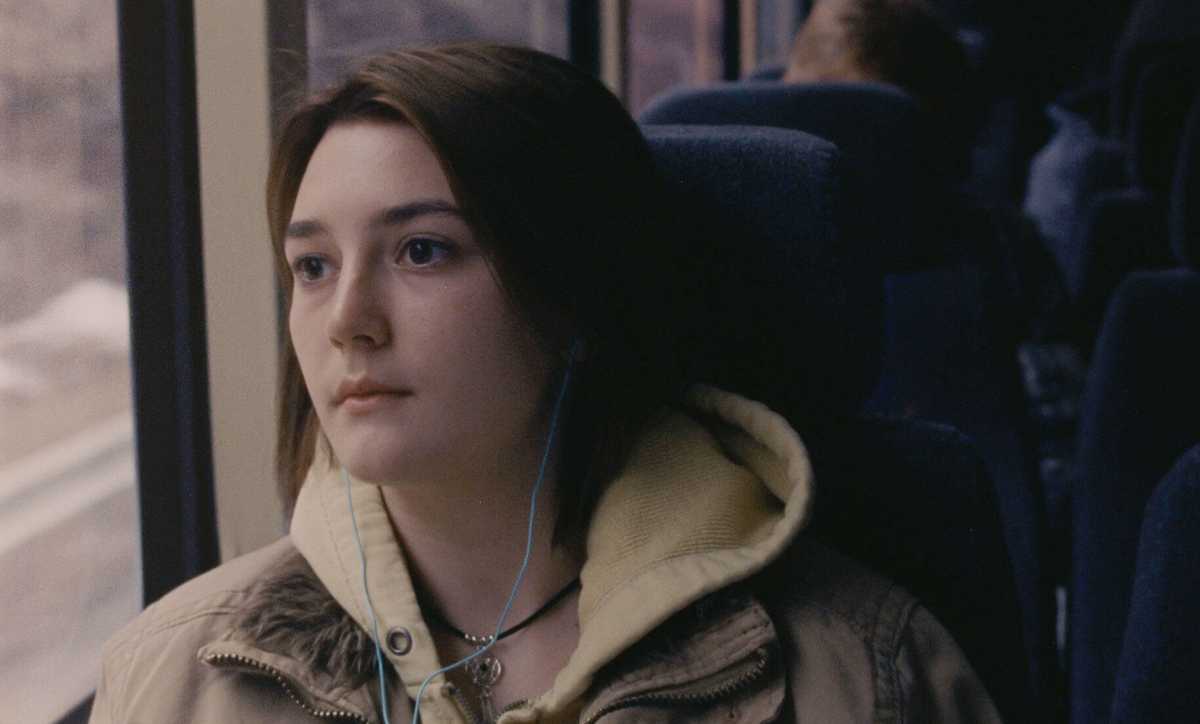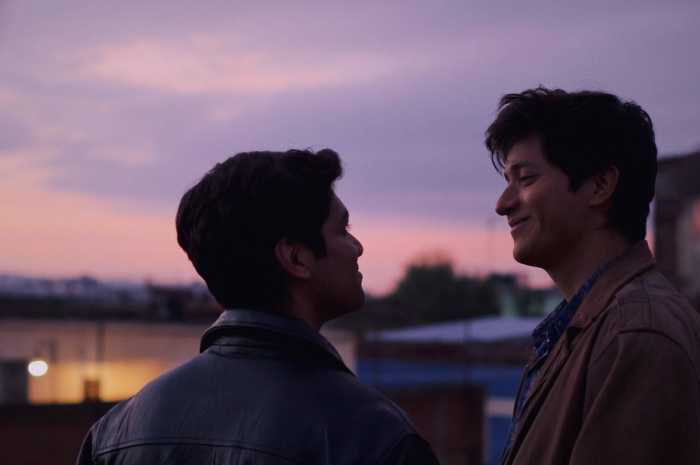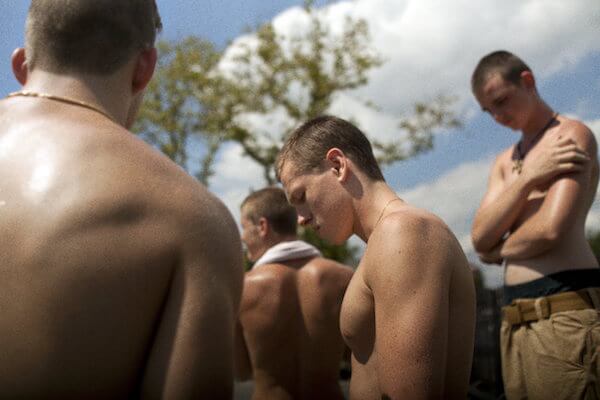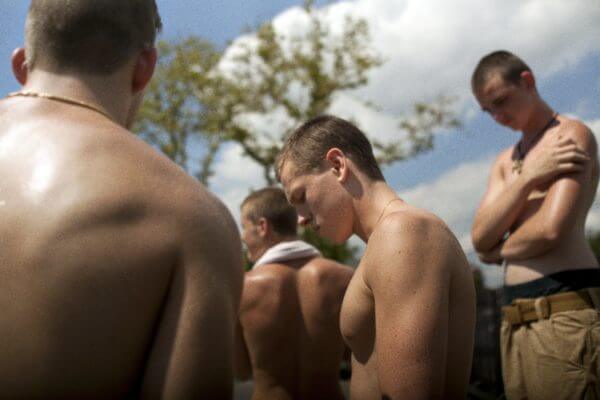Looking back on a difficult year in so many respects, the films stand out:
“Vitalina Varela” (Pedro Costa): A dream of Portuguese underclass life balancing images worthy of Rembrandt and a clear vision of the horror of poverty, “Vitalina Varela” was released to theaters before the pandemic. It features cinematography so dark that it might be unwatchable on home video. Continuing Costa’s ongoing collaboration with non-professional actors Ventura (who plays a priest) and the woman named in its title, it paradoxically builds its highly stylized vision out of the material decay of Lisbon’s slums.
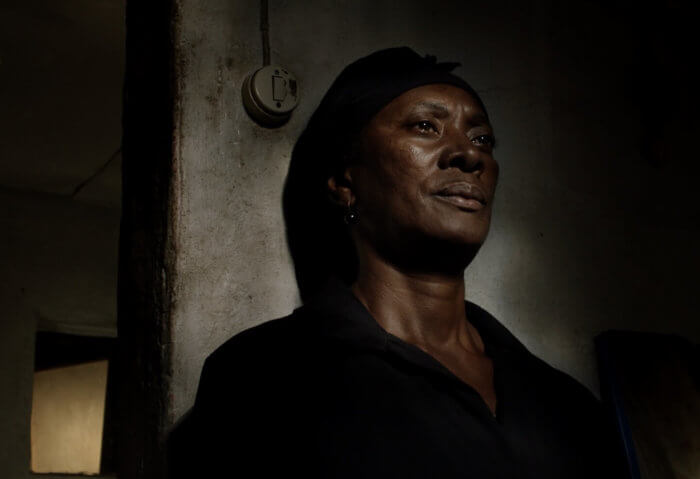
“She Dies Tomorrow” (Amy Seimetz): A film that perfectly fit the mood of this garbage dumpster of a year, “She Dies Tomorrow” concentrates tightly on the experiences of a small group of friends as they pass a mental virus around. Despite the bleak plot, Seimetz is no edgelord. Instead, “She Dies Tomorrow” describes the challenge of coping with a world where our worst fears might well come true and trying to reach out to our family and friends could spread literal disease. Its left-field take on horror feels more like the nightly news.

“Possessor” (Brandon Cronenberg): His father David’s fixation with body horror, facts and conspiracy theories about the CIA’s MK-Ultra brainwashing program, a very modern sense that spending so much time online is robbing us of our individual personalities — all these influences went into Cronenberg’s “Possessor,” but it shows a huge leap in craft from the director’s debut feature, “Antiviral.” Both brutally and beautifully violent, “Possessor” gives us a misanthropic science fiction where killers take over ordinary people’s minds to commit murder and then return to their selves. In its world, finding oneself might be the worst thing that could possibly happen.
“Still Processing” (Sophy Romvari): Few films get as emotionally raw as Romvari’s 17-minute short, made as her York University master’s thesis project. Based around her reaction to old family pictures including images of her two late brothers, “Still Processing” uses “processing” in both senses of the word: dealing with grief and the chemical development of analog photography and film. Her slide show of these photos at the end played to an empty theater in Toronto (apart from her director of photography), but it both suggests a new birth of cinema and helps bring her loved ones back to life for the audience.
“Cenote” (Kaori Oda): A poem would do more justice to the beauty and originality of “Cenote,” which Lincoln Center streamed in its “Art of the Real” festival, as a response than conventional film criticism. (In a mediocre year for narrative features, its avant-garde approach to nature, more “Enter the Void” than David Attenborough, was welcome.) Made by a Japanese director off the coast of Yucatán, Mexico (the title refers to underwater sinkholes formed by meteorites), it uses spare means — an iPhone, Super 8 — to incredible effect. Built upon a series of oppositions (sound versus image, past versus present, land versus sea), it dives in and out of the ocean, reveling in lush blue and green beams of sunshine, to express Mayan ideas about life and death.
“Lovers Rock” (Steve McQueen):I thought about including the entirety of McQueen’s limited series “Small Axe” here, but “Lovers Rock” is the only episode that achieves greatness out of the larger context. While earlier McQueen films reflect a worldview where men need to suffer for spiritual progress, “Lovers Rock” is startlingly warm and celebratory. Set at an all-night reggae house party in the early ‘80s, it barely qualifies as a narrative film (and its 66-minute length also raises worthwhile questions about what we expect from a “feature”), but its reliance on music-based set pieces — Janet Kay’s “Silly Games” and the Revolutionaries’ “Kunta Kinte” bring the house down — links it to Olivier Assayas’ “Cold Water” and Claire Denis’ “Beau Travail.”
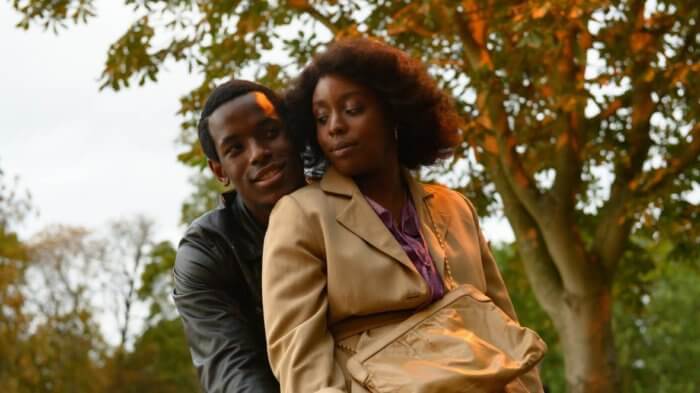
“Never Rarely Sometimes Always” (Eliza Hittman): This film presents a hero’s quest of a kind we’ve rarely seen in American cinema. Trapped by an unwanted pregnancy and the impossibility of getting a legal abortion in Pennsylvania, Autumn (Sidney Flanigan) and her best friend Skylar (Talia Ryder) head to New York for the procedure. “Never Rarely Sometimes Always” wastes no time defending the morality of abortion, instead framing the struggle to get one in America as more worthy of debate than the act itself and depicting teenage girls’ friendship and ability to figure out their lives’ options with a patient, steady determination.
“First Cow” (Kelly Reichardt): I can’t improve on critic John Semley’s words — “an epic told with archetypes we can only faintly perceive, an origin story of a thing that doesn’t exist” — except to suggest that this is where both American capitalism and gayness before the notion of sexual orientation came into medical parlance began.
“Time” (Garrett Bradley): Based around a complex montage of decades’ worth of footage showing Fox Rich’s struggle to live her life while trying to free her husband (jailed for armed robbery), “Time” is far more ambitious than a simple character portrait or activist documentary. It critiques the carceral state by showing the collateral damage it does to the people who love a person in jail (even when no one questions their guilt). The title hits hard, as Bradley shows how jail warps time for everyone in touches.

“Fourteen” (Dan Sallitt): Spanning a decade in their life of two young women’s friendship, “Fourteen” embraces mystery and uncertainty. Both as a director and screenwriter, Sallitt’s style is reticent to say too much. “Fourteen” shows how two people can start from a place of close intimacy and gradually drift apart, questioning our mutual responsibility.
*****
Runners-up: “The Assistant” (Kitty Green), “The Grand Bizarre” (Jodie Mack), “I May Destroy You” (Michaela Coel), “I Was At Home, But…” (Angela Schanelec), “In Search of a Flat Earth” (Dan Olson), “Labyrinth of Cinema” (Nobuhiko Obayashi), “Mayor” (David Osit), “The Nest” (Sean Durkin), “Notes From a Journey” (Daniel & Clara), “On the Record’ (Amy Ziering & Kirby Dick).
*****
Best Shorts: “AI” (Lucrecia Martel), “Daddy” (Christian Coppola), “-force-“ and “Happy Valley” (Simon Liu), “France Against the Robots” (Jean-Marie Straub), “The Giverny Document” (Ja’Tovia Gary), “Hudson Yards Video Game” (created by Conner O’Malley and Cole Kush, but no director credited), “I Know the End” (Alissa Torvinen; music video by Phoebe Bridgers), “Kerosene!,” (SSION’s Cody Critcheloe; music video by Yves Tumor), “Knee Jerk” (Kelly Laitala), “Sad Day” (Hiro Murai; music video by FKA Twigs), “Sanfield” (Kevin Jerome Everson), “Some Other Connection” (Sophy Romvari & Mike Thorn).
*****
Twelve Best Older Films Seen for the First Time This Year: “Bless Their Little Hearts” (Billy Woodberry, 1983), “Emma Mae” (Jamaa Fanaka, 1976), “The End of Evangelion” (Hideaki Anno & Kazuya Tsurumaki, 1997), “Girlfriends” (Claudia Weill, 1978), “Lake Mungo” (Joel Anderson, 2008), “Morgiana” (Juraj Herz, 1972), “Penda’s Fen” (Alan Clarke, 1974), “A Question of Silence” (Marleen Gorris, 1982), “Route One/ USA” (Robert Kramer, 1989), “The Runner” (Amir Naderi, 1985), “The Seashell and the Clergyman” (Germaine Dulac, 1928), “Top of the Heap” (Christopher St. John, 1972).
To sign up for the Gay City News email newsletter, visit gaycitynews.com/newsletter.

